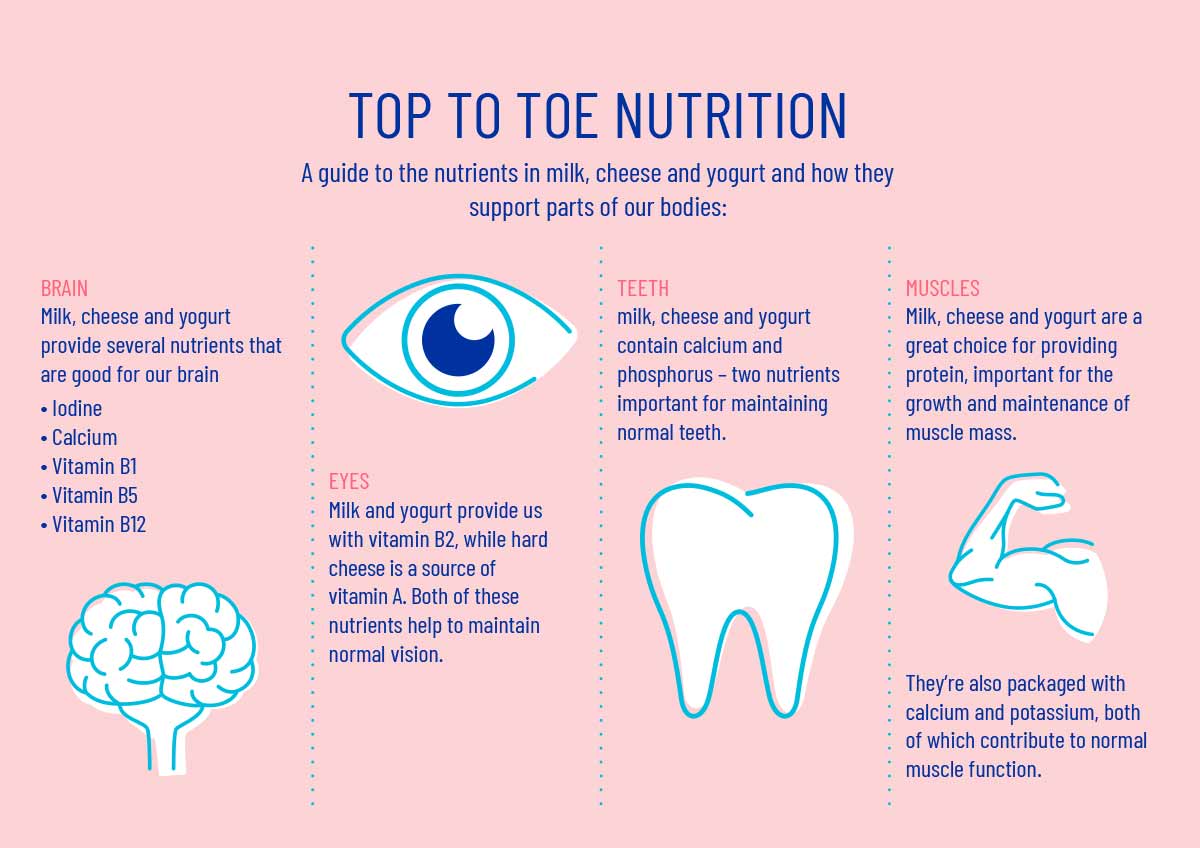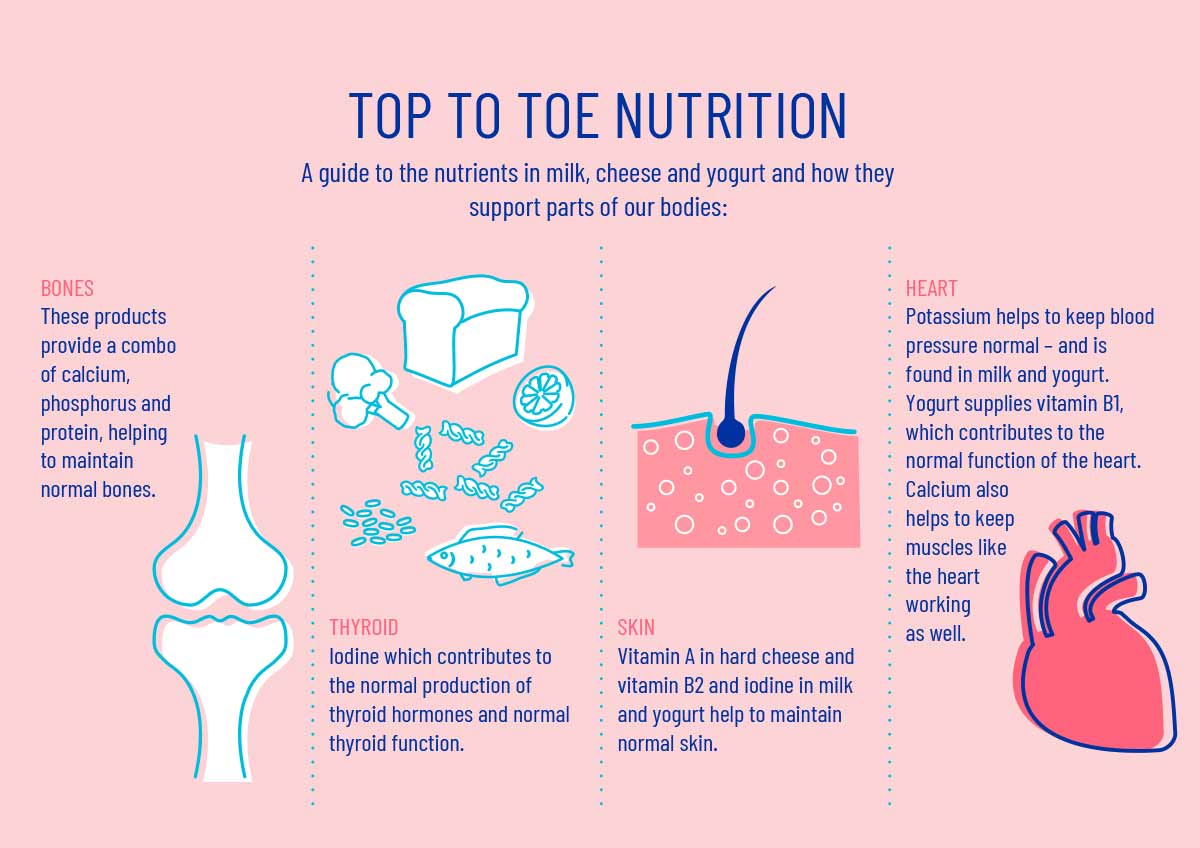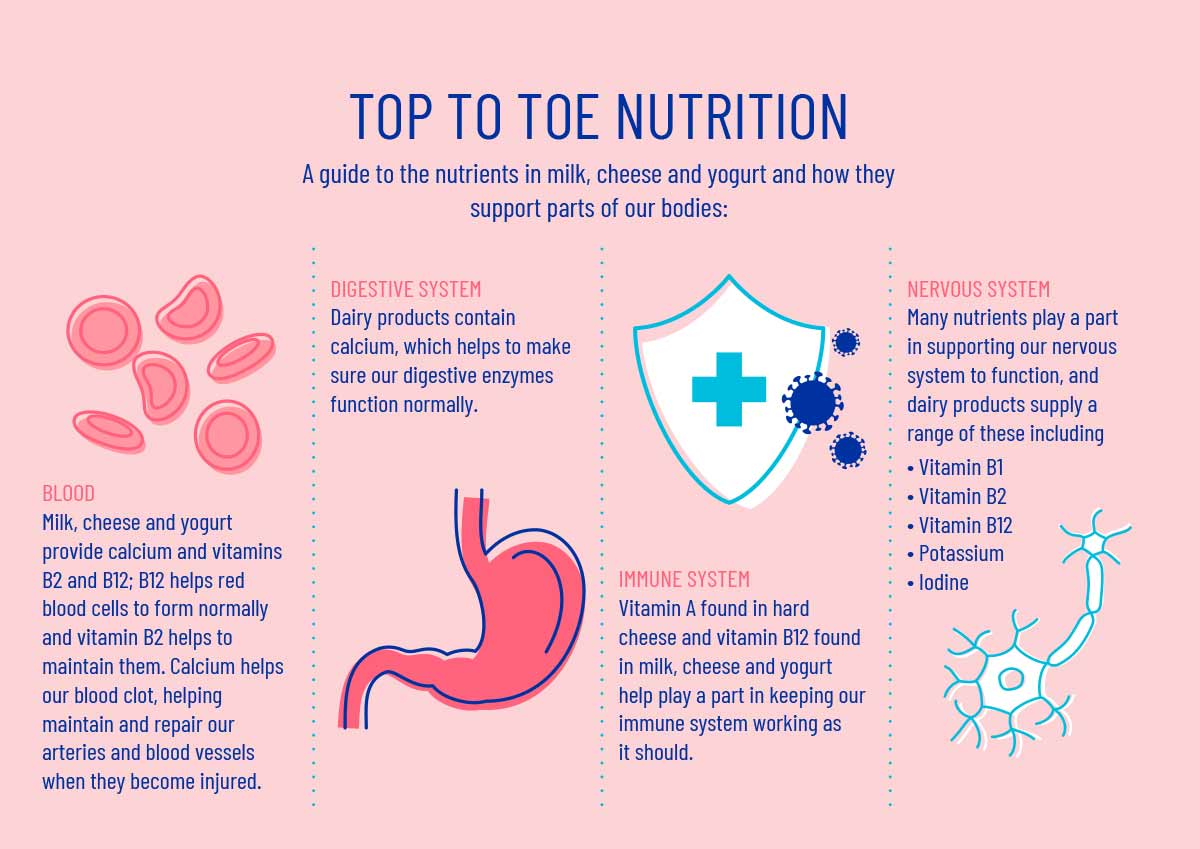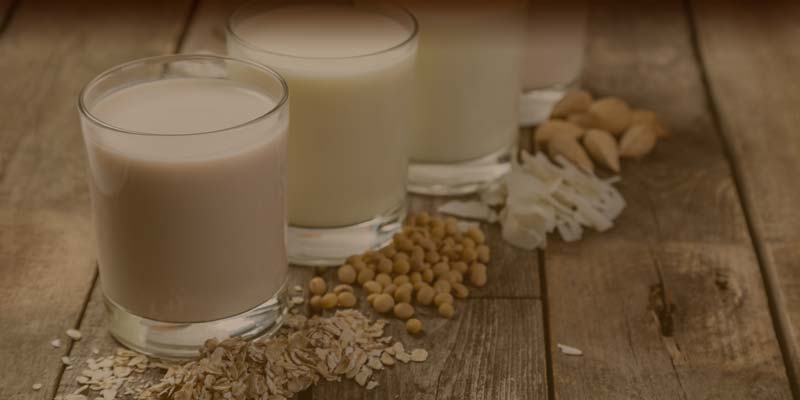Here’s our top-to-toe guide on the nutrients in dairy products and how they affect different parts of our body…

Brain
Dairy products provide several nutrients that are good for our brain…
- Iodine – milk and yogurt are the main supplier of iodine in our diet, a nutrient that’s vital for cognitive function – that’s all the mental activities that affect our attention, memory and language, as well as our ability to think, make decisions and solve problems.
- Calcium – all dairy products are rich in calcium, which supports the delivery of messages between nerve cells.
- Vitamin B1 – yogurt supplies this vitamin which is needed for normal psychological function.
- Vitamin B5 (pantothenic acid) – milk supplies this vitamin, which is needed for normal mental performance. This vitamin also contributes to the creation of chemical messengers in the brain that send signals between nerve cells
- Vitamin B12 – all dairy products provide vitamin B12, which aids normal psychological function – in other words, our emotions, behaviour, ability to be social and our overall mental health.
Eyes
Milk and yogurt provide us with vitamin B2, while hard cheese is a source of vitamin A. Both of these nutrients help to maintain normal vision.
Teeth
Dairy products contain calcium and phosphorus – two nutrients important for maintaining normal teeth. Plus, they’re good choices to have in place of foods and drinks that have a lot of sugar.
Muscles
Dairy products like milk, cheese and yogurt are a great choice for providing protein, important for the growth and maintenance of muscle mass. But they’re also naturally packaged with calcium and potassium, both of which contribute to normal muscle function.

Bones
Dairy products provide a fantastic combo of calcium, phosphorus and protein, all of which help to maintain normal bones.
Thyroid
Iodine is an important nutrient that contributes to the normal production of thyroid hormones and normal thyroid function. Our thyroid gland helps to regulate our metabolism. Milk and yogurt are the main sources of iodine in the UK diet.
Skin
Many nutrients are needed to maintain normal skin and dairy products provide several of these, including vitamin A in hard cheese, and vitamin B2 and iodine in milk and yogurt.
Heart
Reducing salt in our diet can help to keep our blood pressure under control. But there’s one nutrient that also helps to keep blood pressure normal – and that’s potassium, which is found in milk and yogurt. Yogurt also supplies vitamin B1, which contributes to the normal function of the heart. Calcium, another key nutrient found in dairy products like milk, cheese and yogurt, also helps to keep muscles like the heart working as well.

Blood
Dairy products provide calcium and vitamins B2 and B12 and this is good news for our blood. Calcium helps our blood clot, an important process that helps maintain and repair our arteries and blood vessels when they become injured. Vitamin B12 helps red blood cells to form normally and vitamin B2 helps to maintain them.
Digestive system
Dairy products contain calcium, which helps to make sure our digestive enzymes function normally.
Immune system
A variety of different vitamins and minerals play a part in keeping our immune system working as it should. Two of these are vitamin A found in hard cheese and vitamin B12 found in milk, cheese and yogurt.
Nervous system
Many nutrients play a part in supporting our nervous system to function, and dairy products supply a range of these…
- Vitamin B1 found in yogurt
- Vitamin B2 found in milk and yogurt
- Vitamin B12 found in all dairy products
- Potassium found in milk and yogurt
- Iodine found in milk and yogurt
Last reviewed: 02/2025
Next review due: 02/2027











